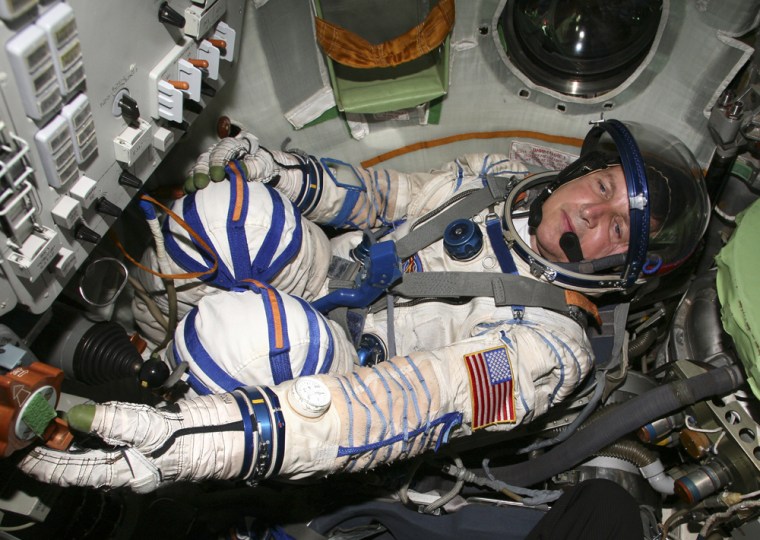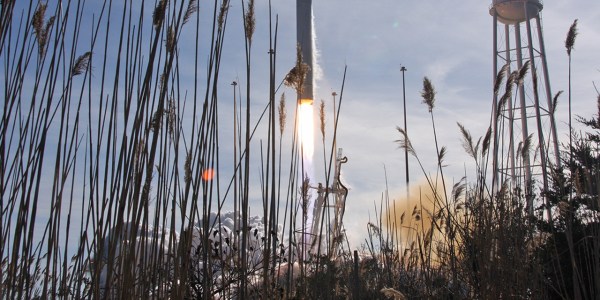Russia won’t be sending tourists to the international space station after this year because of plans to double the station’s crew from three to six people, the head of Russia’s space agency said in an interview published Wednesday.
Russian Space Agency chief Anatoly Perminov told the government newspaper Rossiiskaya Gazeta that U.S. software billionaire Charles Simonyi — who has already flown to the station — will be the last private space passenger when he blasts off from the Baikonur Cosmodrome in March.
He also said Russia has promised Kazakhstan it will send a cosmonaut from the ex-Soviet republic to the station “on a commercial basis,” and the only possible time for that voyage would be this fall.
Since 2001, the lucrative Russian space tourism program has flown six “private spaceflight participants” who paid $20 million and up for flights aboard Russian-built Soyuz crafts brokered by Virginia-based Space Adventures.
The most recent private citizen to fly aboard a Soyuz craft, computer game designer Richard Garriott, paid a reported $35 million for his October trip.
A growing station crew
The space station crew is expanding to six largely to accommodate Canadian, European and Japanese astronauts who have been waiting years to live aboard the station their countries have helped create. It should also boost the time spent on scientific research from an average of 10 hours a week to 35.
Slideshow 12 photos
Month in Space: January 2014
Russian Soyuz and Progress craft have been a crucial part of the $100 billion station’s upkeep and expansion — particularly in the wake of the 2003 Columbia disaster, which saw the entire U.S. shuttle fleet grounded.
NASA will be even more reliant on the Russians after 2010 when the U.S. shuttle fleet is grounded permanently, leaving astronauts to hitch rides on Russian spacecraft until NASA’s new ship is available, in 2015.
Although government funding has increased during Russia’s oil-fueled economic boom of the past decade, Russia’s space agency has been strapped for cash during much of its post-Soviet history. The agency was a pioneer in the business of opening up space travel up to tourists.
A growing field
In recent years, several private companies — including Space Adventures — have raced to build viable operations to run private tours and other space adventures.
Rocket maker XCOR Aerospace, based in Mojave, Calif., last month announced that a Danish man would be the first to ride aboard its privately funded, two-seater rocket ship. It has said tickets were selling for $95,000 each and reservations have been made for 20 flights.
XCOR’s main competitor — Virgin Galactic, part of British billionaire Richard Branson’s Virgin Group — is building SpaceShipTwo, an eight-seater craft that is to take passengers some 62 miles (100 kilometers) above Earth for $200,000 each.
Last year, as Russia's space agency indicated the days for space tourism aboard Russian craft might be numbered, Space Adventures announced it had reached a deal to charter an entire spaceflight just for itself in 2011. The Russian agency would still run the mission, but Space Adventures would pay for the trip and for the Soyuz craft that would be used.
One of the clients in line for that flight is Google co-founder Sergey Brin.
When the deal was announced, Space Adventures said the private-passenger flight would be in addition to the crew transfer missions that typically take place every six months. The two passengers would be taken to the station by a professional cosmonaut serving as the mission's commander.
Space Adventures said on Wednesday that its plans were unchanged.
This report includes information from The Associated Press and msnbc.com.

